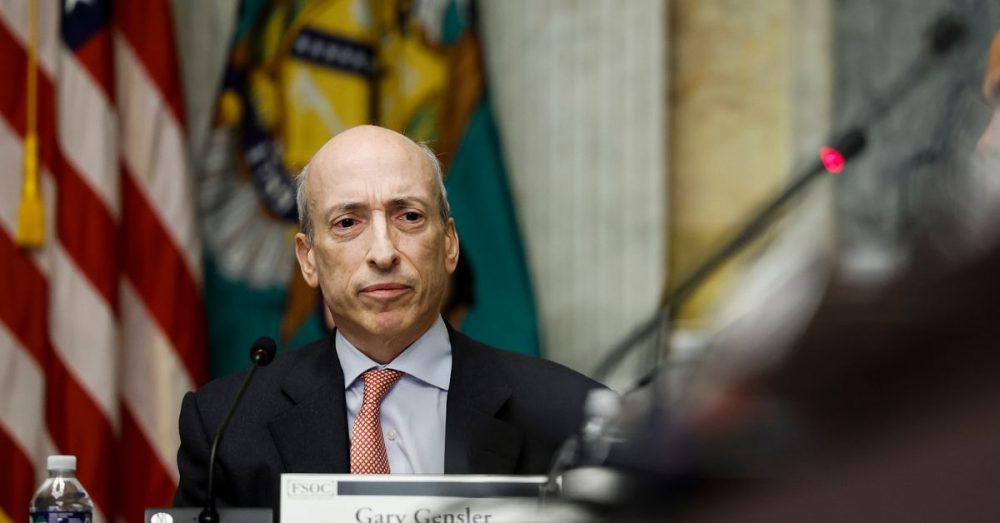Two Republican members of the U.S. House of Representatives criticized the Securities and Exchange Commission’s (SEC) approach to regulating cryptocurrency and suggested the regulator’s actions were timed to overshadow and undermine efforts to write comprehensive legislation.
“While Congress works to close regulatory gaps, the SEC has opted to regulate by enforcement,” Reps. French Hill (R-Ark.) and Dusty Johnson (R-S.D.) wrote in a letter sent Wednesday to the commission’s chairman, Gary Gensler.
“This approach does not result in compliance and customer protection,” they continued, “but instead creates further confusion, as demonstrated by the recent summary judgement” — a reference to Ripple’s partial victory in its court fight with the SEC.
Making matters worse, Hill and Johnson wrote, were “certain Commission actions, seemingly timed to coincide with related Congressional activity, which appears calculated for maximum publicity and political impact.”
The lawmakers’ insinuation comes at a fraught time for crypto in the U.S. following the collapse last year of the FTX exchange and other major crypto businesses, as aggressive regulatory moves have led surviving companies to seek more hospitable jurisdictions and startups to avoid setting up shop stateside.
Although they did not elaborate, the lawmakers appear to be referring to the timing of the SEC’s suits last month against leading crypto exchanges Binance and Coinbase.
Both cases came days after the Republican chairs of two House committees released a discussion draft proposing an overhaul of crypto regulation in the U.S.
(To be fair, Hill and Johnson engaged in a bit of media maneuvering themselves; they provided the letter to members of the press on the condition it not be published before a specified time, a common practice for businesses and government officials.)
Hill and Johnson mentioned that discussion draft in their letter, along with two bills introduced since 2021 and 15 hearings held in the last four years on the subject by their House committees (financial services and agriculture, respectively).
The SEC’s approach “does not protect the public,” they argued. “Legislation would do far more to prevent future collapses of digital asset firms than enforcement actions. A statutory framework would establish a process for firms to come into the regulatory parameter and comply with consumer protections, rather than relying on enforcement actions to punish a bad actor after the damage has already been done.”
They closed their letter with an invitation for “productive engagement” on such legislation from the SEC.







